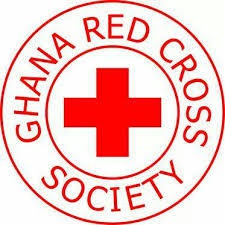A Mother, New-born and Child Health (MNCH) project has begun to contribute to reducing maternal and child mortality in four districts in the Northern Region.
As part of the project, 10 Mothers’ Clubs each have been formed in communities in the four districts and have been trained on maternal, neonatal and child health care and family related issues at the community level.
The Mothers’ Clubs sensitised communities on the Ghana Health Service’s (GHS) approved behaviour change messages including family planning and danger signs in MNCH behaviours as well as on danger signs in MNCH to ensure the well-being of pregnant women, lactating mothers and new-borns.
The three-year project (2018 to 2020) is being implemented by the Ghana Red Cross Society (GRCS) in partnership with GHS and supported by Swiss Red Cross, and the beneficiary districts include; Saboba, Tatali/Sanguli, North Gonja and Kpandai.
To this end, the GRCS in partnership with GHS has held a project inception meeting for its stakeholders comprising district organisers of the GRCS, district Mothers’ Clubs facilitators and health promotion officers from the four districts to apprise them of their responsibilities for successful implementation of the project.
Mr Abdul-Rahamani Yussif, Northern Regional Manager of the Ghana Red Cross, who spoke during the meeting in Tamale, said the project would improve on knowledge, attitude and practices of community members, especially pregnant women and lactating mothers with regard to accessing antenatal and neonatal care.
According to the Northern Regional Health Directorate, a total of 130 women died during childbirth at health facilities in the region in 2016 as against a total of 92 maternal mortality cases recorded in the region in 2015.
The figures also showed that 426 children from zero to 11 months old also died in the region in 2016, a situation the MNCH project seeks to reverse.
Mr Yussif said tricycle ambulances would be provided to targeted communities to help to transport pregnant women to health facilities to access health care to ensure safe delivery.
He said the project would engage community leaders and elders on enforcing some of the practices in their community to promote pregnant women’s access to maternal and neonatal care at health facilities and ensuring care for new-borns for up to five years.
He called on all stakeholders to work hard to ensure the success of the project such that other district would benefit from it.
Madam Gifty Nagbija, Health Promotion Officer at Saboba District, who was a participant at the meeting, lauded the project saying it would help to reduce maternal and child mortality in the beneficiary districts adding that the use of Mothers’ Clubs would help to change the behaviour of the people to patronise health facilities whiles pregnant.
General News of Friday, 25 May 2018
Source: ghananewsagency.org
Red Cross begins MNCH project in N/R
 Logo of Ghana Red Cross Society
Logo of Ghana Red Cross Society
















